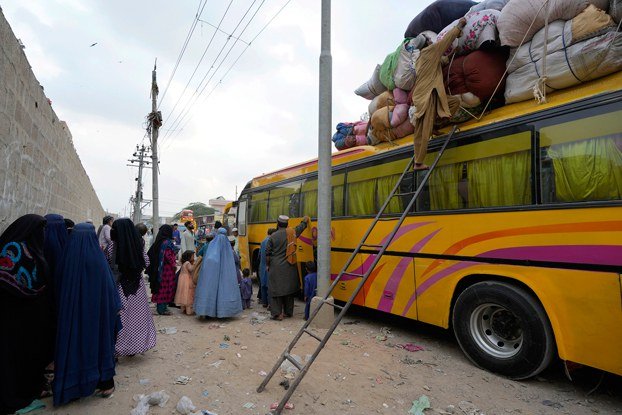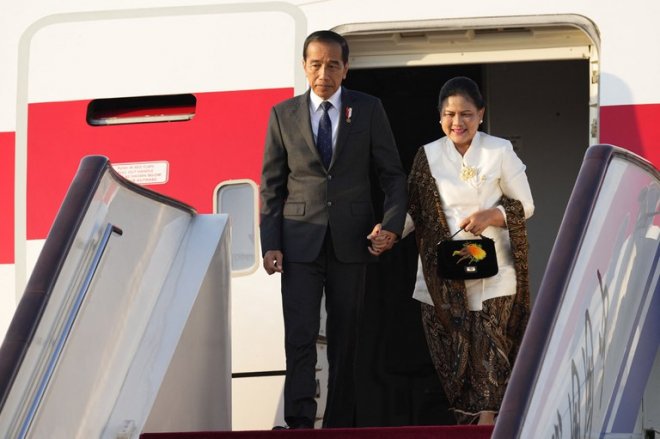INTERVIEW: ‘They are away from their families, language, religion and culture.’
A new U.N. report warns that Chinese government assimilation policies are affecting about 1 million Tibetan children, forcing them to attend so-called residential schools, separated from their families, culture, religion and language.The report said that the schools teach content from the Han majority’s perspective and force the Tibetan students to learn in Mandarin Chinese, the People’s Republic of China’s standard language, or Putonghua.
UN experts said they were disturbed by the residential school system that “appears to act as a mandatory large-scale programme intended to assimilate Tibetans into majority Han culture, contrary to international human rights standards.”
In an interview with RFA’s Mandarin Service, UN Special Rapporteur on minority issues Fernand de Varennes, who contributed to the report, explained its findings and why the residential schools are problematic. The interview has been edited for length and clarity.
RFA: What about the report’s findings was the most disturbing to you and the rest of the U.N. experts?
De Varennes: If you look at our communication, the main conclusion is that there seems to be an extremely large number of children, perhaps as many as 1 million children, who actually have to go to residential schools for long periods of time, which means that they are away from their families, language, religion and culture.
The information we received is that in most of these schools they are not taught in their own language. They are taught in Putonghua, in Mandarin, and there are also other restrictions. There is very little exposure, if you will, to their own culture.
Being removed from their families and communities means that also in terms of religious or even cultural instruction, they are far removed.
So what was most surprising, and indeed we could even use the word shocking, is that this seems to be a very systematic approach to have children really assimilated into the Han language, religion and cultural spheres.
So for us, this was something that had not been dealt with in such a comprehensive way that we had to look at what seemed to be a design to actually assimilate Tibetan children into the Han majority.
 Fernand de Varennes is the United Nations Special Rapporteur on minority issues. Credit: United Nations
Fernand de Varennes is the United Nations Special Rapporteur on minority issues. Credit: United NationsRFA: How would you like China to address this problem and how would you like the U.N. body to react to this? What can they do to solve this problem and to help Tibetan culture, language and minority rights prosper?
De Varennes: There has to be a look at the extent that the Tibetan language and culture are actually excluded in the educational field.
As the communication indicates, private schools, which did teach in Tibetan, have been closed in many parts of the region.
There are all kinds of other restrictions that seem to be applied specifically to Tibetan children and the regions where Tibetans are concentrated.
So what needs to be done, I think, is to reflect on what seems to be extremely forceful and systematic approaches to weaken, in fact, or even eliminate all those, it seems, the Tibetan language and cultures, from the educational field by preventing private education measures, by, in fact restricting heavily the use of Tibetan language.
These are aspects we had not looked at previously. This is clearly, on the face of it, a situation where the Chinese authorities are refusing to acknowledge that the Tibetans and their families and children have the right to be educated in their own language and to be exposed to their own cultures.
RFA:China said nothing in response to a written query on the matter that the U.N. body submitted in November. So what can we do now? What can the world do to stop China from practicing this kind of cultural assimilation?
De Varennes: It must be clear that not teaching children in their own language does not help their development. In the case of Chinese authorities, there may be the belief and it may be an honest belief, that the way to progress can only be achieved by having children completely adopt Putonghua, the Mandarin official language.
This is not accurate. It"s clearly to the disadvantage of children not to be touched in their own language, and in this case, we do have clear reports of schools, especially rural schools, which used to teach in Tibetan being closed in the name of the best interests of children.
These educational policies have to be looked at again because they are not helpful. In fact, I would say that they are destructive and clearly against the interests of children who are going to be disadvantaged by being removed from their own families, by not learning in the best medium of education possible in their own language as much as is feasible.
And thirdly, to actually force education in the way which goes against perhaps the intentions of the parents.
The scale of the allegations here, that we have 1 million children or possibly up to a million children sent to residential schools away from their homes and families, is completely unacceptable in this day and age.
This was something that perhaps happened with indigenous people in the 19th century or the beginning of the 20th century, but in the 21st century, this is clearly against the interests of the children. It is clearly against the interests of the communities involved.
This will be disruptive and actually create situations where children are disadvantaged. This has to change fundamentally in the name of children and to effective education.
Edited by Eugene Whong and Malcolm Foster.
[圖擷取自網路,如有疑問請私訊]
|
本篇 |
不想錯過? 請追蹤FB專頁! |
| 喜歡這篇嗎?快分享吧! |
相關文章
AsianNewsCast























